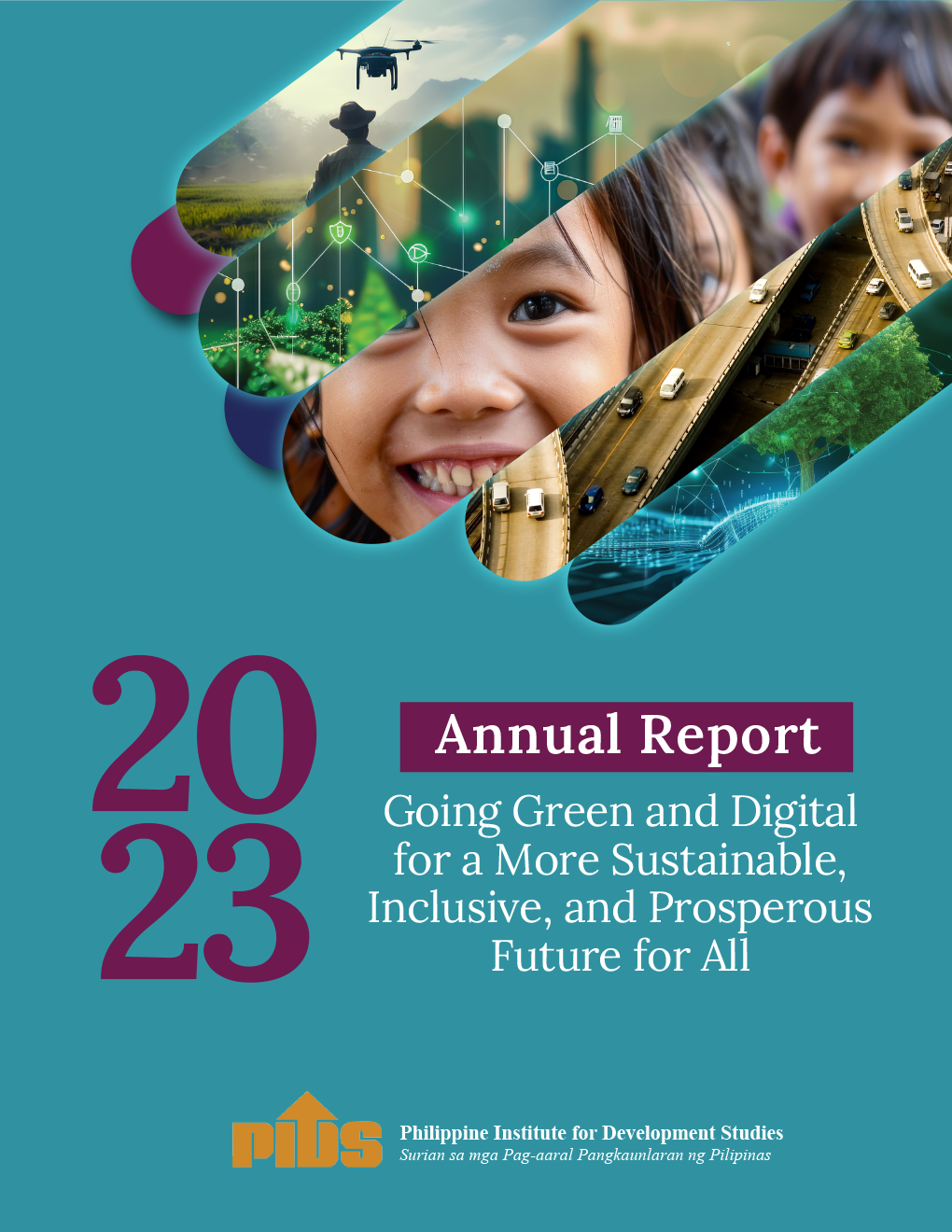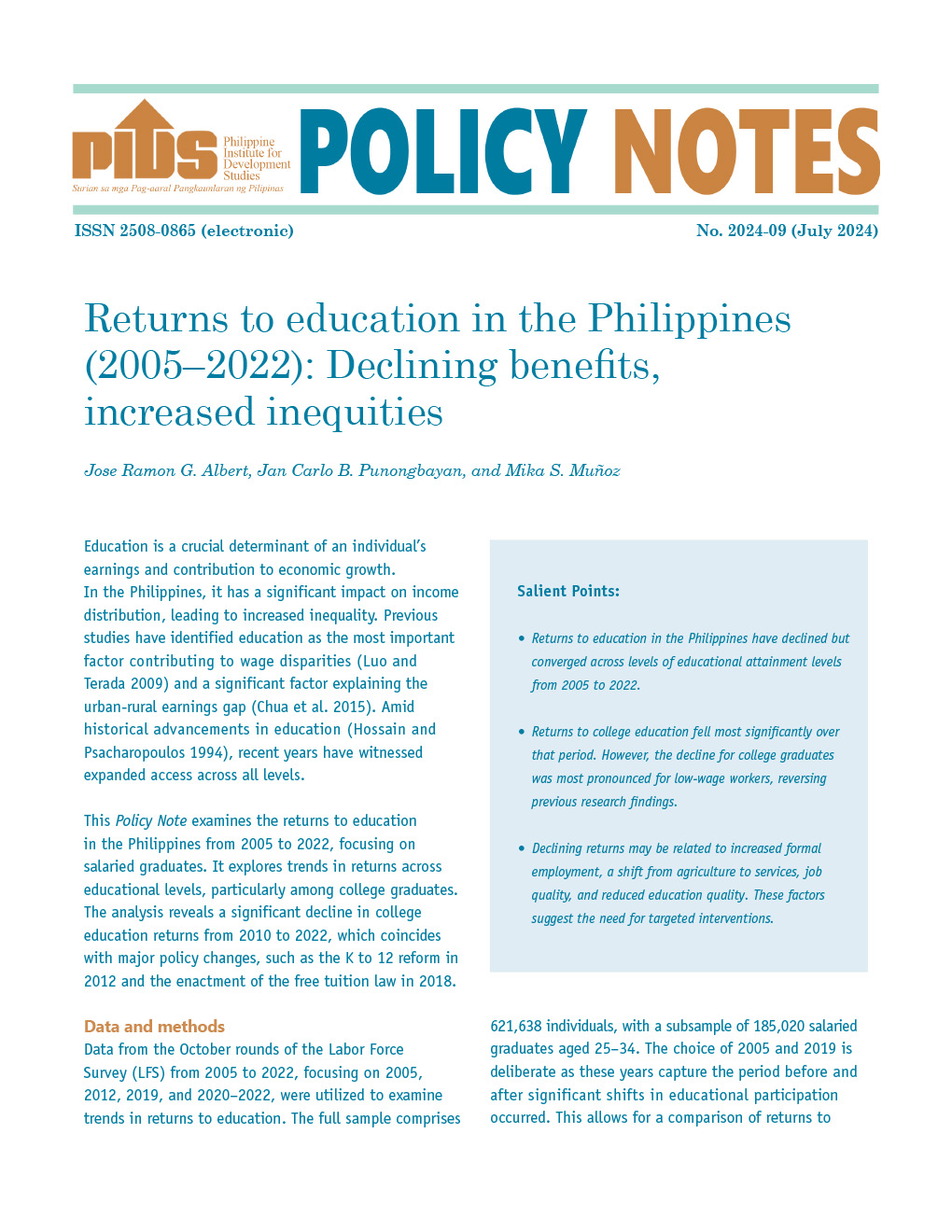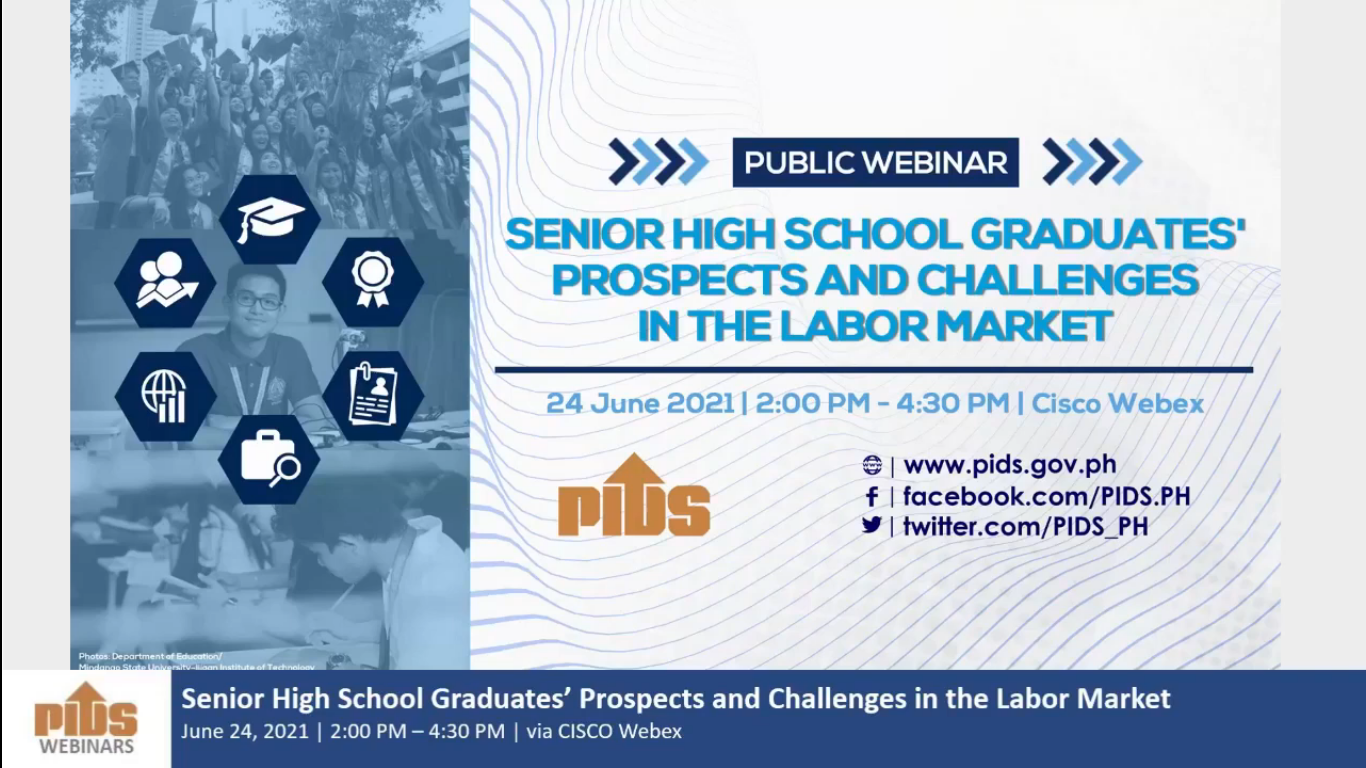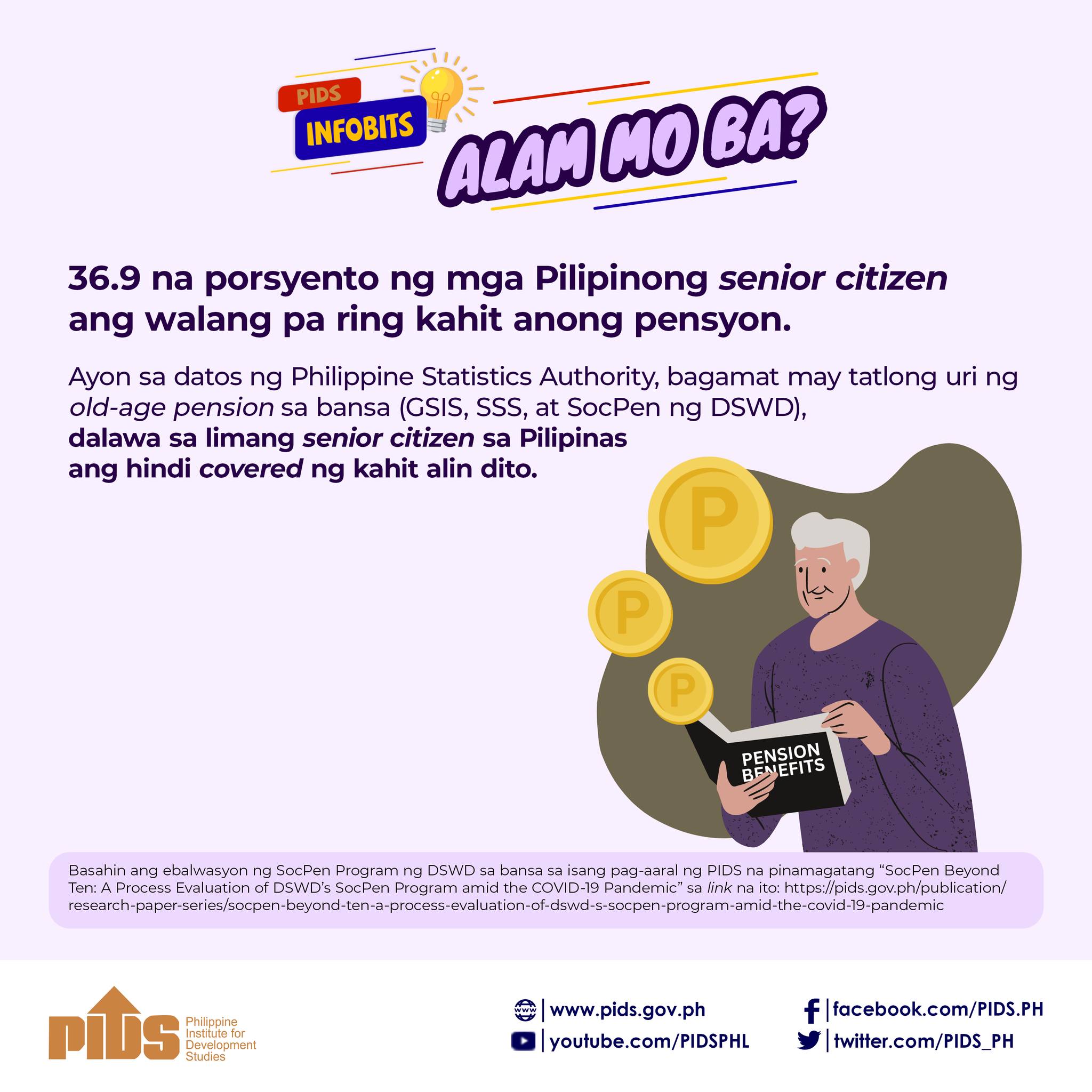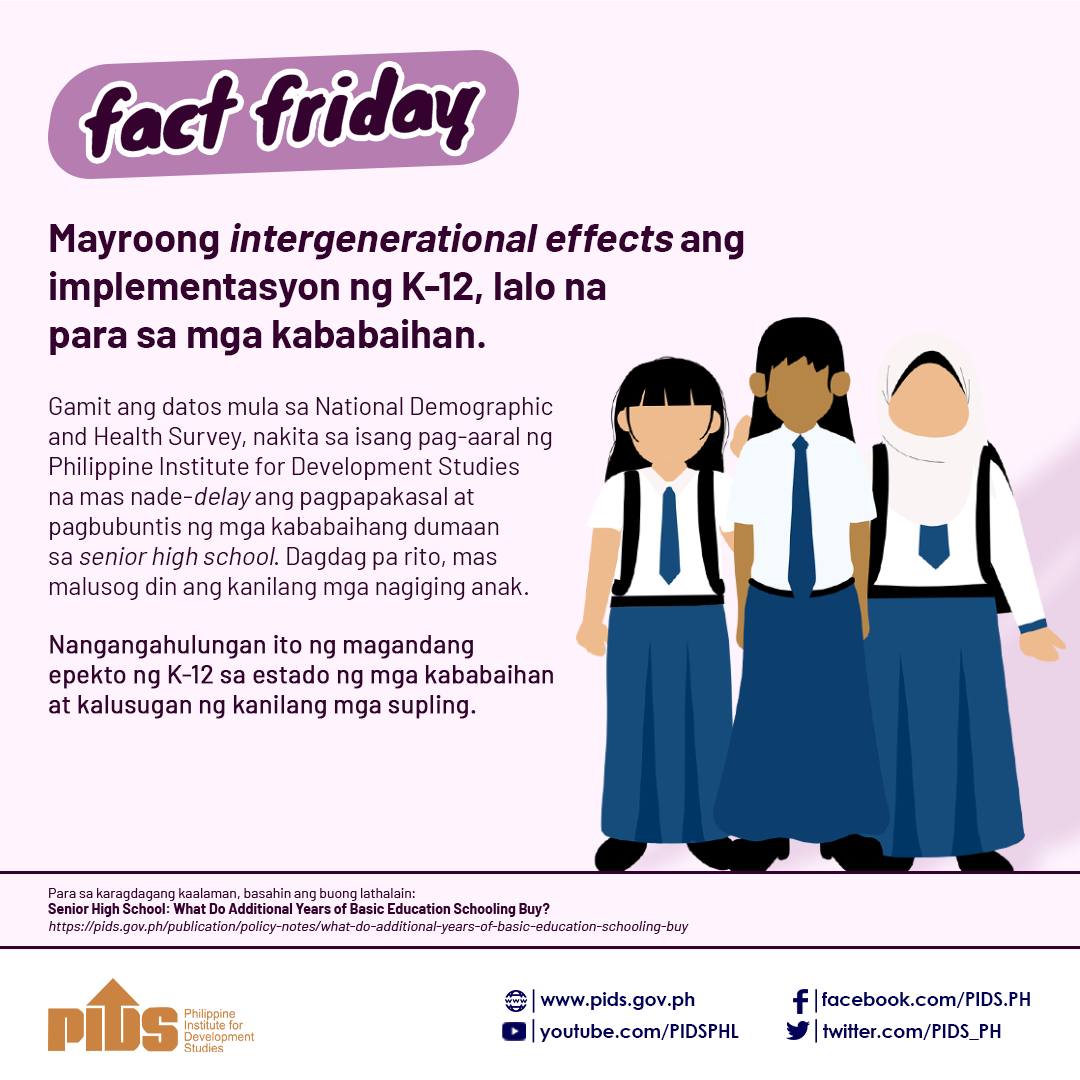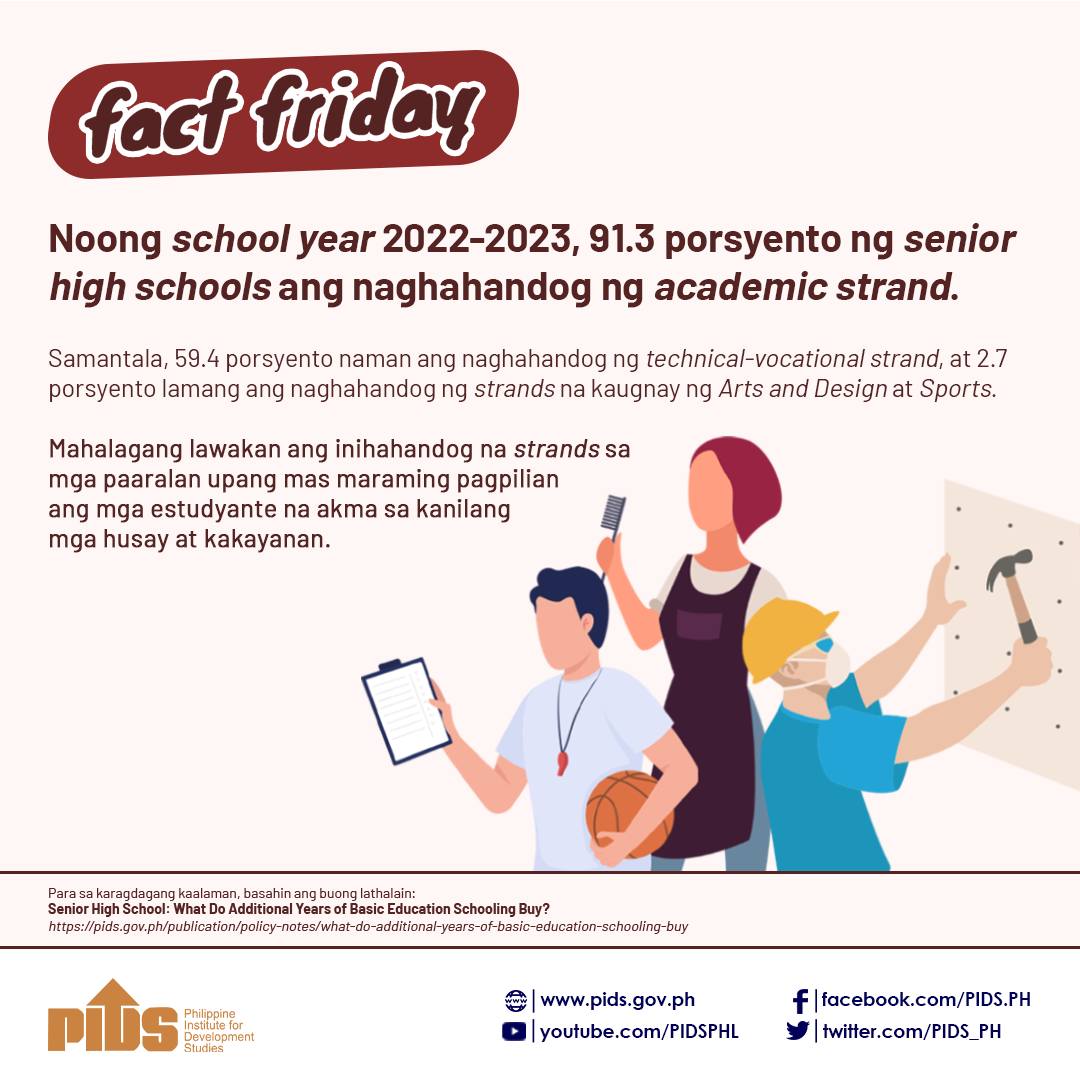MANILA -- Some senior high school (SHS) students are unable to write "even a decent English sentence," an article from a state think tank has claimed.
In the article, Philippine Institute for Development Studies (PIDS) consultant Karen Brillantes said SHS students' difficulty with writing in English was particularly evident in subjects where they were required to produce research papers to pass a course.
Students often submit projects only to comply with requirements, "preventing them from maximizing the learning they should have been getting from SHS education," according to the report.
The report found that the design and content of the current SHS curricula was "too ambitious" and designed for advanced learners, such as science high school students in Metro Manila.
"As such, may SHS students are unprepared for the materials they are assigned to study," the report said.
SHS teachers, according to the report, also face difficulties in delivering the curricula "due to insufficient guidelines, inadequate materials and preparations."
The report also raised concerns on the lack of resources in senior high schools, and the need to balance academics with sports and arts classes.
Brillantes, however, said the challenges in the SHS program were mere "birthing pains," which were usual in the implementation of new programs.
She called on the Department of Education, Commission on Higher Education, and Technical Education and Skills Development Authority to improve its coordination in ironing out policies related to the SHS program.
In 2013, President Benigno "Noynoy" Aquino III signed into law the Enhanced Basic Education Act, which expanded the 10-year basic education cycle in the Philippines with kindergarten and 12 years of basic education.
In the article, Philippine Institute for Development Studies (PIDS) consultant Karen Brillantes said SHS students' difficulty with writing in English was particularly evident in subjects where they were required to produce research papers to pass a course.
Students often submit projects only to comply with requirements, "preventing them from maximizing the learning they should have been getting from SHS education," according to the report.
The report found that the design and content of the current SHS curricula was "too ambitious" and designed for advanced learners, such as science high school students in Metro Manila.
"As such, may SHS students are unprepared for the materials they are assigned to study," the report said.
SHS teachers, according to the report, also face difficulties in delivering the curricula "due to insufficient guidelines, inadequate materials and preparations."
The report also raised concerns on the lack of resources in senior high schools, and the need to balance academics with sports and arts classes.
Brillantes, however, said the challenges in the SHS program were mere "birthing pains," which were usual in the implementation of new programs.
She called on the Department of Education, Commission on Higher Education, and Technical Education and Skills Development Authority to improve its coordination in ironing out policies related to the SHS program.
In 2013, President Benigno "Noynoy" Aquino III signed into law the Enhanced Basic Education Act, which expanded the 10-year basic education cycle in the Philippines with kindergarten and 12 years of basic education.

